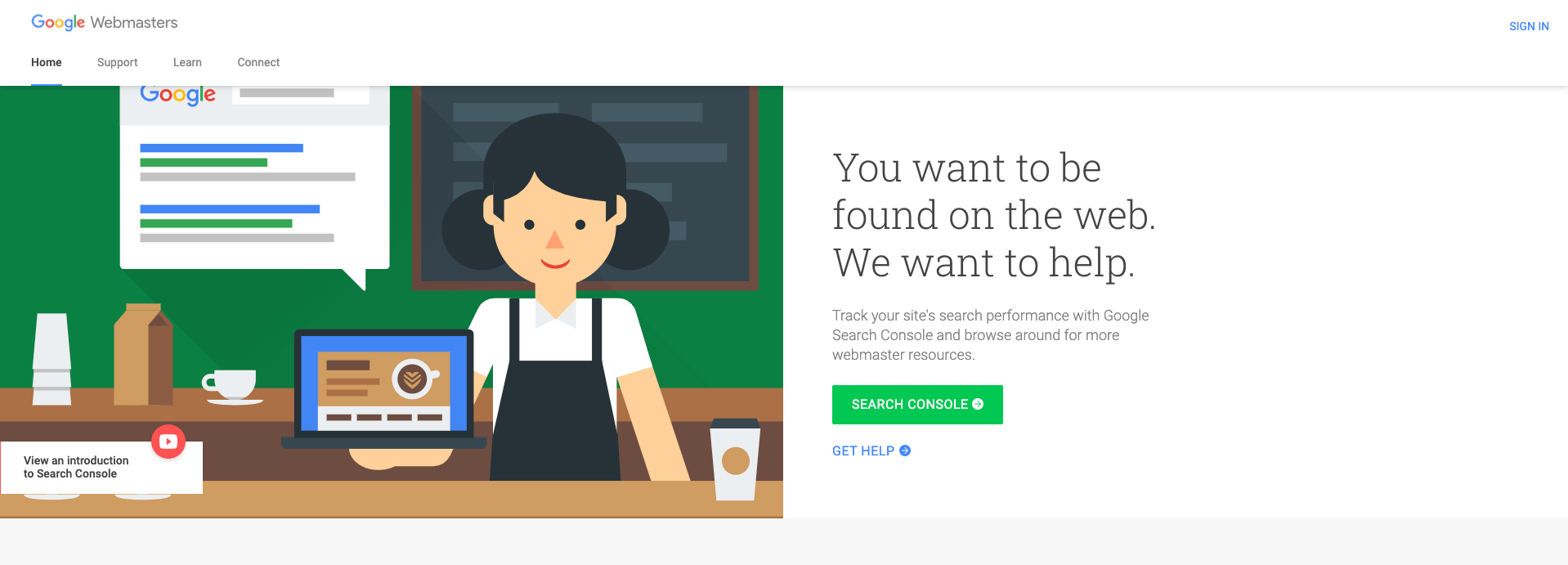
# seo# ultimate guide
The Ultimate Beginner's Guide To SEO To Organically Increase Website Traffic For New Websites
We've all been there, launched a new website, started writing meaningful and plentiful content only to find that next to no one is visiting and clicking through to your website.
I've built websites and have grown them from 0 clicks per day, to getting thousands of impressions per month, all by following a very simple strategy, and I'm going to share these tips with you today, for free, on our domain monitor blog.
Are you ready? Let's dive right in.
What is SEO and why is it important to my website?

SEO is short for Search Engine Optimisation. You've probably heard this from your website's developer, or have come across it during your website development.
SEO is the process of getting your website to be shown in front of others, organically, without having to pay anything.
This differs from paid advertising where you'll spend money to have your website shown to people searching for keywords and topics in your space.
How can SEO be used to generate more traffic?
- SEO takes months and years. NOT weeks or days!*
- You've got to be in this for the long haul
- Start driving traffic to your website today
You've got a website that you've just launched, or you already have a website and it's been around for some time, you're not seeing anyone show up to your site and are getting upset?
I was in that same mindset, until I learnt about SEO and tried it with another website I've built around cars.
It took months of work, and writing content every single day.
This is ultimately the game plan. You need to be in this for the long haul in order to generate more traffic to your website organically.
Some people will try and sell you the idea that you can get thousands of website visitors per month, I'm not here for that, I'll tell you that this is a process which will take time, and months before you start seeing the signals of success.
How long does SEO take for new websites?
You dream of someday having a website that can generate organic search traffic without the need to pay for traffic right?
To get to this kind of level, you're going to need to prove to Google, and the various search engines that your content is worthy enough, relevant enough and answers someone's EXACT question, with the highest level of detail.
A practical SEO example - the RIGHT way!
Let's say you're starting a brand new website and you're going to start selling and teaching people how to fly racing drones in their local area.
You've firstly got to have both the experience in this niche (this is called picking a niche) and ideally some experience.
You start by buying a domain for your website, and also look at picking the perfect domain extension, you launch your website, and add some products.
You now need to start writing content about the following:
- What is a racing drone?
- How do I change the propellers of my racing drone?
- How to fly a racing drone
You need to pick about 5 categories around the topic of racing drones, and ideally sub-categories.
For instance, "flying" might be a category of racing drones, and "where to fly" might be a sub-category.
You need to write around 30 blog posts, well written, and once Google start showing you the results of these contents, i.e: how many impressions and clicks you're getting, you can go back and update those posts by:
- Adding more fresh content
- Improving the content you wrote before
- Adding internal links to other related blog posts of yours
How do I monitor the SEO impact of my website?

Once you start to get the ball rolling with writing SEO optimised content for your website, whether that be a website about domains or a website about racing drones, you'll want to monitor the impact of your success.
There's a few ways you can go about doing this, here I'll go over TWO of the most popular ways to monitor the website traffic from your SEO efforts:
Google Webmaster Tools (The Search Console)

If you aren't familiar with what the search console is from Google, the simplest way to explain what this is is...
It's the place where you'll submit your website's sitemap (a sitemap is like a dictionary of your website's pages) and check to see whether there are any errors on your site for you to resolve.
If you're new to Google Webmaster tools, I'd highly recommend watching the below video to help you out!
Webmaster tools will help you identify several things about your website and help you improve upon each item...
Impressions
An impression is usually the number of times that your page has showed up to a person browsing in a search engine, it isn't the number of people that click through to your site, it's purely an indication of the number of people that the search engine has presented your content to.
Clicks
Similar to impressions, but this metric is used for figuring out actually how many people have clicked through to your website.
You'll need to have impressions before you can get clicks, so if you start to see a surge in impressions or an upwards trend, you will likely start to see clicks that follow.
Google Analytics

Another tool that'll help you monitor the efforts of your SEO journey is Google Analytics, and I use this all of the time to find out the following data:
- What pages people are visiting on the domain monitor
- The most popular pages
- How many people are on my site right now
- The audience and demographics of my users
If you're new to Google Analytics, I highly recommend viewing the below video! It's quick, and will only take you a few minutes
You see, the thing with Google Analytics is that you might hardly use the tool within the first few months of building your organic SEO website traffic for your website.
And that's totally fine, you can check back at Google Analytics after you've written a few articles and have given the search engine time to index your content!
With Google Analytics you'll be able to...
See who's on your site RIGHT NOW!
If you're planning on making edits to your website, you'll want to check whether there's anyone on your website right now.
If there isn't then you're reducing the risk of downtime on your site.
And if you want to be extra cautious, I'd recommend adding your website as a monitor to our domain monitor and we'll let you know when your site is back up!
Check your most popular pages on your domain
Another feature of Google Analytics which will help you determine where your website visitors are the most is the page content and pages section of Google Analytics.
This will help you identify what pages your website visitors (and hopefully soon, customers) are viewing the most.
Strategies for increasing organic website traffic

There are many ways to increase the amount of traffic your website gets, some are free, others require spending a bit of money.
However...
If you're looking to increase SEO traffic for the long term, you're going to want to focus on content marketing and put this at the forefront of your strategies list.
Optimise On-Page SEO
One of the most basic techniques that you can implement today for FREE is to get started with the On-Page SEO of your website. What is this?
Put simply, it's ensuring that the content on your website is optimised technically for the search engine and includes:
- Having various heading tags such as H1, H2 and H3 headings
- Using bulleted lists (UL and LI tags)
- Making sure your images and media contain appropriate ALT tag attributes
These are some of the technical factors that the search engines use to determine how to rank your website, and where it should be positioned.
Optimise Off-Page SEO
Off page SEO is the process of organically building up backlinks (these are links to your site from other websites), generating social shares and doing SEO beyond the means of your own website.
So whether you've just started that racing drones website or a website about domains this is a process which will for sure take months.
You see...
When you first launch a website, regardless of how great your content is, or the design of your website, nobody is going to find your site - at least to start.
You'll be getting a tiny number of clicks after a few weeks (potentially) and it'll feel like the efforts of writing content, promoting content and generally working on means of getting people to your site isn't working.
And this is the problem most websites face, and the same is likely to be true about yours.
You need to simply be legitimate, don't try and force people to share your content, and don't spam your website domain name all over the internet just to try and generate backlinks.
Google won't like this and it'll likely go against your SEO efforts.
Write and publish content - and publish often!
It sounds obvious doesn't it, but if you don't write and publish content, how can Google figure out what your website is about and start showing your site to other people?
Here's what I suggest, and you might not be a content writer, or may not be passionate about writing content.
Okay, I get it, it's hard for some people to write, if you don't feel comfortable writing content, you could try:
- Videos - create a video of you speaking about those racing drones or teach someone how to do something
- Podcasts - similar to video, but instead it's your voice that will be sold here, make it stand out, be authentic and people will continue listening to your content.
You might think that creating a podcast isn't going to drive any organic website traffic to your domain name, and whilst it's true that it'll certainly be harder to achieve this through podcasting - it's not out of reach by any stretch of the imagination.
I could talk about something for hours on end, and I can do that through words...
But for you, it might be easier to do this through video, or podcasting.
Whatever the case, you need to write and publish content, often, and at least for 90 days before you start to see any significant signs of success here.
It'll be hard, and if 1,000 started this, I guarantee that just 1% of those would actually be able to give this a really good go! Are you one of those 1%?
Do keyword research
What is a keyword? It's the phrases and words that you use to find a specific piece of content online.
There's hundreds of thousands of articles, videos and podcasts that all rank in the search engine for keywords, it's your goal to try and reach out to a percentage of those people.
How?
By doing keyword research. Most online bloggers will tell you that you need to invest in a paid keyword tool, like this one from kwfinder.
Whilst it's true that investing some money in one of these tools can help you find relevant keywords in the niche that you're in, it's not essential. I've got a better, FREE alternative...
Find trending keywords on Amazon and Udemy
Right, hear me out on this one... Amazon and Udemy? Think about it, both of these platforms get a lot of website traffic and allow people to find products and services around certain topics.
So if you're trying to start a website on: "how to become the best cook ever" then there will be books on the Amazon kindle store, the best sellers, and guides with topics on Udemy.
This is key. Because this is the type of content that clearly is selling, and is what people are looking for.
So why not check there first to find out what topics to write about, this is exactly what I did to find some of the topics on the domain monitor.
Use a domain expiry check tool
Someone's browsing your website, they've added something to the cart, about to pay for the product and your domain has just expired...
The last thing you want is for your domain name to expire.
Why?
Because if your domain name expires then there's a very good chance that you won't be able to checkout - and would've failed.
This is why you should sign up to our domain monitor and add your domain name so that we can let you know before your domain expires so that you don't have any downtime on your website as a result of domain expiry.
Drive organic SEO website traffic with the "32 day SEO challenge"

In this section, I'm going to reveal to you how to drive organic SEO traffic to your website using the 32 day SEO challenge.
What is this challenge?
When you first start a website, whether it be an online store that sells products or services, or are simply writing a blog, you'll need to create meaningful content that's valuable to your website visitors.
This doesn't mean to try and sell them products or services that they simply don't need by writing a piece of content filled with affiliate marketing links or clickbait.
What is affiliate marketing?
Let's say you're a popular online store and you sell shoes. It's such a niche market that by getting other people to send you traffic in return for giving them a commission is essentially affiliate marketing.
They're going to promote your products, and everytime someone uses one of the links you give them, YOU will get a commission back, essentially driving more traffic to your site.
Start the 32 day SEO challenge today...
There are millions of blog posts that are published online everyday, almost 3 million blog posts according to an article from hostingtribunal.
This means that in order to stand out from the rest, and prove to Google and other search engines that you deserve website traffic you need to start the process of writing content, today.
And when you start writing content, your best bet as a beginner is to simply follow the "shotgun" approach for the first 32 days, this is where you'll write a piece of content every day, somewhere in the region of between 1,000 and 2,000 words.
Once this content is picked up by the search engine and is indexed, you'll be able to come back and expand on the topics that you wrote initially, creating fresh content for the search engine to index.
Organically increasing website traffic - the conclusion

Whether you're starting out by writing content, selling products or services online there's no doubt that the process is going to take a long time.
If you follow the tips and guidance from us at the domain monitor, we'll guide you through the process of growing your website from 0 to a possibility that you might not have thought about previously.
And we're doing just that, we're following the guidance we're telling you and are already starting to see some results!
We'll update this post as we learn more so that you don't have to look too far for the results of our efforts.
More posts
Website uptime monitoring for e-commerce stores what you need to know
As an e-commerce store owner, you understand the importance of having a reliable and efficient online presence. Let's look at why website uptime monitoring is so important for e-commerce. Read more today.
Read moreThe role of website uptime monitoring in ensuring customer satisfaction
As a business owner, ensuring customer satisfaction should be a top priority. One key aspect of customer satisfaction is having a reliable and efficient online presence, which is where website uptime monitoring comes in.
Read moreMaximizing the efficiency of your website uptime monitoring strategy
As a website owner, uptime monitoring is crucial to ensure that your website is always available and functioning properly. In this article, we'll discuss how to maximize the efficiency of your website uptime monitoring strategy, including the use of tools, setting up alerts, and optimizing your website's performance.
Read moreSubscribe to our PRO plan.
Looking to monitor your website and domains? Join our platform and start today.